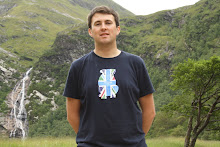
TED (Technology, Entertainment, Design - though not limited to those fields anymore it seems!) is a non-profit organisation which is famous for holding regular conferences where they promote "ideas worth spreading" (as their motto frequently states).
Speakers
At the elaborate conferences (mostly held in the US, but also in Europe) there are a series of lectures (or TED talks as they colloquially call them) given by speakers who are both:
- Experts in their field.
- Great speakers.
Examples of past speakers include the authors of Freakanomics, the founders of Google, Billy Graham and Al Gore, as well as countless academics, authors and businesspeople.
Format
A key point to note is that TED limit the talks to eighteen minutes. I wouldn't be surprised to discover that TED have produced some physiological research which states that that is the best length for a lecture to last, and a graph mapping the diminishing returns from longer talks!
The format of the conferences most definitely impacts the types of speakers, and thus their disciplines. The focus seems to be solely on the speaker, overuse of a slide-show is looked down upon, and even if used the slide-show ought to be unique in its style (and definitely the software they use!).
The "big ideas" that are put forward in such a small amount of time (compare it to a conventional lecture which would last a full hour or more) forces the speaker to do something nearly impossible, be both interesting (and often humorous) and get an idea across which has perhaps been the basis of several years of research, a great corpus of writing.
The conferences are recorded and are uploaded regularly to their easy-to-use website (www.ted.com) The website itself is excellent for a few reasons:
- It's simple.
- Their latest videos are on the homepage.
- If you hover over the video it gives all the basic information.
- Videos which are more popular appear as larger thumbnails.
- They have useful filters.
- The quality of the talks is excellent.
- They are downloadable, both as videos or audio files.
Academic resource
Students like to use Wikipedia as a tool for research for a number of reasons, chiefly it is comprehensive in scope, free and easy to use. I think the same can be said of TED, and other similar websites. Obviously TED is not an encyclopedia and comparisons to Wikipedia may seem naive, but the style is similar and that I believe is what makes it such a popular website.
Unlike Wikipedia we know who the person giving the talk is, they are accomplished in their field and are usually putting forward an idea that they have researched and written on. In addition the format (being a short and interesting talk) captures out attention, allows us to give our full attention to the speaker and perhaps be inspired to learn more on the topic.
Next
In the next blog I'm going to look at TED in more detail, using the example of it's most watched talk of all time. Hopefully in this blog was successful in showing the benefit of TED to students, proving that TED is a digital academic source. In the next blog I hope to be able to show the use of TED from the other perspective, not from the user but the provider. Why should academics (and perhaps historians in particular) use TED (and others like it).



